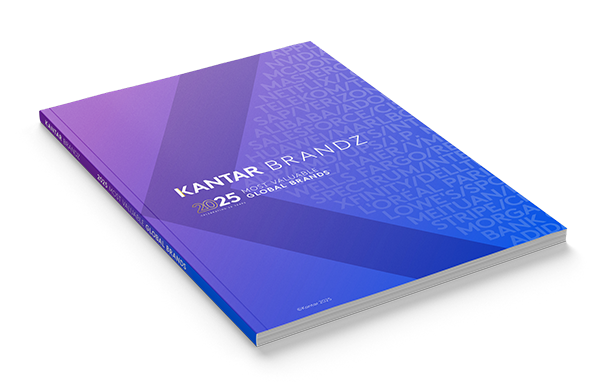If it wasn’t clear before the inauguration of the 47th US President on January 20th, it surely is now: we are living in an era of disruption. Discontinuities are now a feature of the marketplace, not the exception. Every metric, be it macro or micro, shows this clearly, including the Global Economic Policy Uncertainty Index. So do the trendlines on ecommerce, m-commerce, unicorns, blockchain, crypto, cyber security and of course AI. Companies need to understand that the business models perfected during a more stable era are no longer enough.
And this is all prior to perhaps the greatest disruptor of all: climate change. The World Economic Forum’s Global Risks Report now serves as a yearly reminder of the many looming environmental instabilities to come, with all their associated disruptions to human society and the economy. What we think of today as ‘corporate sustainability’ is quickly becoming basic risk management.
Mark Carney, Prime Minister of Canada (and former UN Special Envoy for Climate Action and Finance, and Governor of the Bank of England) put it bluntly: ‘Businesses are facing existential risk in an era of disruption. If some companies and industries fail to adjust to this new world, they will fail to exist’. Business leaders have finally gotten the memo. According to the most recent UN Global Compact–Accenture CEO survey, ‘nearly 100% of the world’s leading CEOs believe sustainability is critical to their companies’ future success.’
But how do consumers think businesses should respond? Kantar data shows that almost three-quarters of people worldwide believe businesses have a responsibility to make society fairer. Two-thirds say it’s up to corporations to solve climate and environmental issues.
Young consumers are strong environmental advocates in their own right. A little over half of all people globally agree with the statement: ‘I consider myself an environmentalist’; this figure rises to 57% among Gen Z, and 64% among Millennials. And the spike is most pronounced among younger Millennials: they are the trailblazers, pulling Gen Z along behind them.
For Millennials and Gen Z, sustainability isn’t just a preference. It’s part of their identity. More than half of both groups agree with the statement that ‘buying sustainable products or choosing environmental and socially conscious services shows others who I am and what I believe in’. These values extend beyond consumption. They also shape career choices. Young workers look for companies with sustainability strategies and they want to work for organisations whose values match their own.
Jerome Powell, Chair of the US Federal Reserve, sees young people’s impact as transformational: ‘You have seen a world upended, but you have also seen a world that is rapidly changing – sometimes more in one week than some of us have experienced over the course of decades. This is an extraordinary time, and I believe that it will result in an extraordinary generation.’
We agree. We are living through a fundamental generational break, the likes of which we last saw after World War II. That break saw the institutionalism of the Lost, G.I., and Silent Generations give way to the individualism of the Boomers. Institutionalism didn’t vanish completely, but values and attitudes shifted palpably. The brands that aligned themselves with this new mindset – think Levi’s, Harley-Davidson, and Marlboro – became not just winners, but icons.
The break we’re currently experiencing is moving in the opposite direction. Individualism is giving way to mutualism. That doesn’t mean that individualism will disappear overnight. And we will continue to see reactionary beliefs and actions aimed at maintaining the status quo. But the long-term trend is clear.
Economic power is shifting too, with an unprecedented transfer of wealth to these two most populous generations in human history. In the US alone, Millennials and Gen Z could be poised to inherit an unprecedented $84.4 trillion from Boomers over the next 20 years. As they gain financial power, people will be financially liberated to align their purchasing and consumption behaviours with their stated values and beliefs. This will help to close the infamous value-action gap: the disconnect between what people say they care about and what they actually buy. With this generational shift, people may be able to afford the sustainability premium that so many brands have been waiting for.
As Millennial and Gen Z consumers take control of the marketplace, they are looking for brands that share their mindset. Companies that embrace mutualism will gain an edge, and in this regard, Airbnb, Vinted and IKEA are already leading the way. More will follow, but it’s those brands brave enough to step up now that will reap the greatest cultural and commercial rewards – and become the iconic brands of the coming decades.
Read more data-driven thought leadership in the 20th anniversary edition of Kantar BrandZ’s Most Valuable Global Brands report now available at www.kantar.com/campaigns/brandz/global
For a quick read on a brand’s performance compared to competitors in a specific category, Kantar’s free interactive tool, BrandSnapshot powered by BrandZ, provides intelligence on 15,000 brands. Find out more here.
And this is all prior to perhaps the greatest disruptor of all: climate change. The World Economic Forum’s Global Risks Report now serves as a yearly reminder of the many looming environmental instabilities to come, with all their associated disruptions to human society and the economy. What we think of today as ‘corporate sustainability’ is quickly becoming basic risk management.
Mark Carney, Prime Minister of Canada (and former UN Special Envoy for Climate Action and Finance, and Governor of the Bank of England) put it bluntly: ‘Businesses are facing existential risk in an era of disruption. If some companies and industries fail to adjust to this new world, they will fail to exist’. Business leaders have finally gotten the memo. According to the most recent UN Global Compact–Accenture CEO survey, ‘nearly 100% of the world’s leading CEOs believe sustainability is critical to their companies’ future success.’
But how do consumers think businesses should respond? Kantar data shows that almost three-quarters of people worldwide believe businesses have a responsibility to make society fairer. Two-thirds say it’s up to corporations to solve climate and environmental issues.
Young consumers are strong environmental advocates in their own right. A little over half of all people globally agree with the statement: ‘I consider myself an environmentalist’; this figure rises to 57% among Gen Z, and 64% among Millennials. And the spike is most pronounced among younger Millennials: they are the trailblazers, pulling Gen Z along behind them.
For Millennials and Gen Z, sustainability isn’t just a preference. It’s part of their identity. More than half of both groups agree with the statement that ‘buying sustainable products or choosing environmental and socially conscious services shows others who I am and what I believe in’. These values extend beyond consumption. They also shape career choices. Young workers look for companies with sustainability strategies and they want to work for organisations whose values match their own.
Jerome Powell, Chair of the US Federal Reserve, sees young people’s impact as transformational: ‘You have seen a world upended, but you have also seen a world that is rapidly changing – sometimes more in one week than some of us have experienced over the course of decades. This is an extraordinary time, and I believe that it will result in an extraordinary generation.’
We agree. We are living through a fundamental generational break, the likes of which we last saw after World War II. That break saw the institutionalism of the Lost, G.I., and Silent Generations give way to the individualism of the Boomers. Institutionalism didn’t vanish completely, but values and attitudes shifted palpably. The brands that aligned themselves with this new mindset – think Levi’s, Harley-Davidson, and Marlboro – became not just winners, but icons.
The break we’re currently experiencing is moving in the opposite direction. Individualism is giving way to mutualism. That doesn’t mean that individualism will disappear overnight. And we will continue to see reactionary beliefs and actions aimed at maintaining the status quo. But the long-term trend is clear.
Economic power is shifting too, with an unprecedented transfer of wealth to these two most populous generations in human history. In the US alone, Millennials and Gen Z could be poised to inherit an unprecedented $84.4 trillion from Boomers over the next 20 years. As they gain financial power, people will be financially liberated to align their purchasing and consumption behaviours with their stated values and beliefs. This will help to close the infamous value-action gap: the disconnect between what people say they care about and what they actually buy. With this generational shift, people may be able to afford the sustainability premium that so many brands have been waiting for.
As Millennial and Gen Z consumers take control of the marketplace, they are looking for brands that share their mindset. Companies that embrace mutualism will gain an edge, and in this regard, Airbnb, Vinted and IKEA are already leading the way. More will follow, but it’s those brands brave enough to step up now that will reap the greatest cultural and commercial rewards – and become the iconic brands of the coming decades.
Read more data-driven thought leadership in the 20th anniversary edition of Kantar BrandZ’s Most Valuable Global Brands report now available at www.kantar.com/campaigns/brandz/global
For a quick read on a brand’s performance compared to competitors in a specific category, Kantar’s free interactive tool, BrandSnapshot powered by BrandZ, provides intelligence on 15,000 brands. Find out more here.


